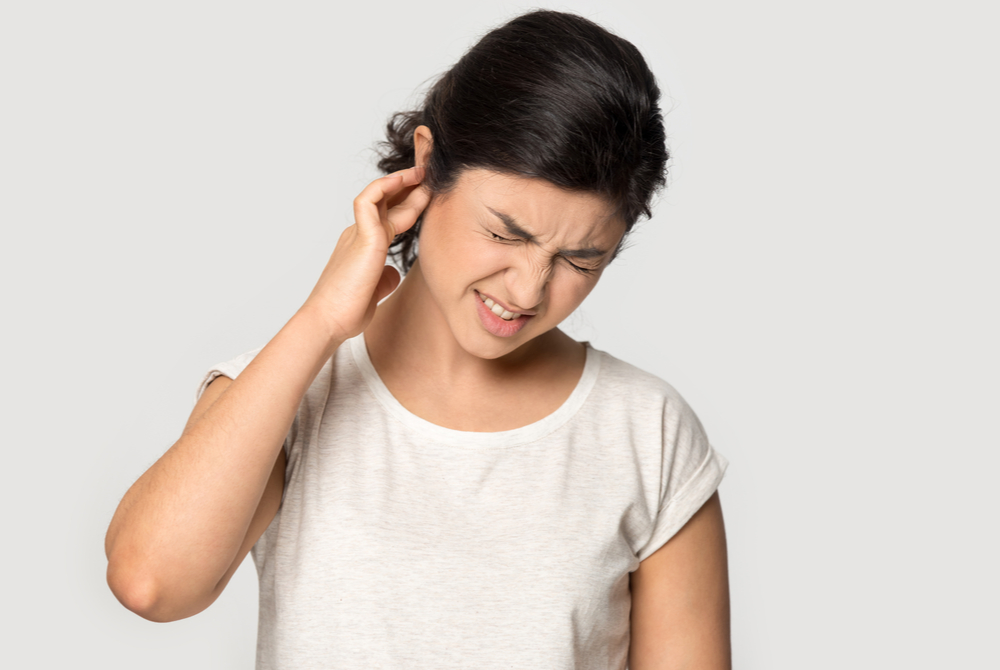My Eat Continues to Have Wax

A buildup of earwax can not only be embarrassing but also can cause more health problems. Here's how to deal with it.
Earwax may be considered one of the more unpleasant bodily substances, but it plays a critical role in your ear health, and it's a good thing it's there. For some people, though, earwax buildup can occur and may need to be removed at home or by a medical professional. Here's how to keep your ears and wax healthy to help prevent this buildup.
What is earwax?
Earwax is necessary: It's your ears' self-cleaning system.
Officially called cerumen, this oily substance traps dirt, germs and debris, preventing them from venturing farther into the ear canal. Cerumen also protects the delicate skin of the ear canal from getting irritated when water enters it.
Do I need to clean my ears?
Here's a surprising fact about earwax: There is no hygienic reason to clean out wax from your ears.
"Earwax is generally excreted naturally and does not require removal," explains Jennifer R. Boozer, DO, a family medicine physician at Keck Medicine of USC and clinical associate professor of family medicine at the Keck School of Medicine of USC.
Regular movements of your jaw, such as chewing, help work the earwax to the outer part of your ear, where it flakes off or is rinsed away when you shower. That's normally the only ear cleaning you need to do.
The earwax process is normal, and messing with it often causes more problems than it solves.
Too much earwax can cause symptoms ranging from pain to hearing loss or even a reflex cough. Ringing in the ear, itching and dizziness can also occur.
Jennifer Boozer, DO
Should I use cotton swabs or ear candles to remove earwax?
 No. Cotton swabs don't remove earwax. Instead, they push it deeper into the ear canal, where it can't escape. Using cotton swabs can also dry out delicate skin and cause irritation.
No. Cotton swabs don't remove earwax. Instead, they push it deeper into the ear canal, where it can't escape. Using cotton swabs can also dry out delicate skin and cause irritation.
You also shouldn't use ear candles, which are purported to remove wax with heat but have not been shown to be effective and, in fact, can be harmful. Ear candles can damage the ear canal or eardrum.
The same rule goes for not putting anything else into your ear, especially pointy things like bobby pins or car keys (yes, people have been known to try this). Anything pointy could potentially puncture your eardrum.
Sticking things into your ear can have very negative consequences and can also be one of the main causes of earwax impaction.
What is earwax impaction?
The same rule goes for not putting anything else into your ear, especially pointy things like bobby pins or car keys (yes, people have been known to try this). Anything pointy could potentially puncture your eardrum.
When earwax is pushed deeper into the ear, it can get trapped and cause a blockage or even an infection.
"Earwax can become impacted from using cotton swabs, earbuds or earplugs," Boozer says. "Impaction can also become more likely with age."
"But, sometimes, earwax impaction can have no specific cause," she adds.
How do I know if my earwax is impacted?
If you do end up with a blockage of earwax, you might experience some unpleasant symptoms.
"Too much earwax can cause symptoms ranging from pain to hearing loss or even a reflex cough," Boozer says. "Ringing in the ear, itching and dizziness can also occur."
Hearing trouble may continue to get worse as time goes on. You might also notice a full or plugged up feeling in the ear, or even an odor.
What can I do for impacted earwax?
Your doctor can help with impacted earwax removal or may instruct you on how to safely remove earwax at home. Here's how impacted cerumen is treated:
- Irrigation: "In the doctor's office, we can flush out the wax," Boozer says. This entails squirting lukewarm water with a syringe to gently rinse the inside of the ear. Your doctor may also direct you to try irrigation at home.
- Softening: "Impacted earwax can often be treated at home with over-the-counter drops to soften the wax so it is expelled, with kits that flush out the wax after softening it or even by applying a cotton ball dipped in mineral oil to the external canal to soften it," Boozer says. This helps break up the earwax, so it will fall out. Follow your doctor's instructions on what to use, how much and how often to use it.
- Professional instruments: "A trained doctor may use specialized tools to remove it," Boozer says. Don't try this at home!
If you have continuing problems with earwax buildup or any other concerning problems, like a fever, drainage or bleeding from your ears, contact your doctor. If you wear hearing aids, you may need to have your ears checked more often, as the aids may block the normal escape of earwax.
If you have hearing loss due to earwax buildup, the good news is that it's most likely temporary. Your hearing should return to normal after the wax is removed.
Topics
cotton swabs
Dr. Jennifer Boozer
ear candles
earwax
hearing loss
Source: https://www.keckmedicine.org/blog/why-do-i-have-so-much-earwax/
0 Response to "My Eat Continues to Have Wax"
Post a Comment